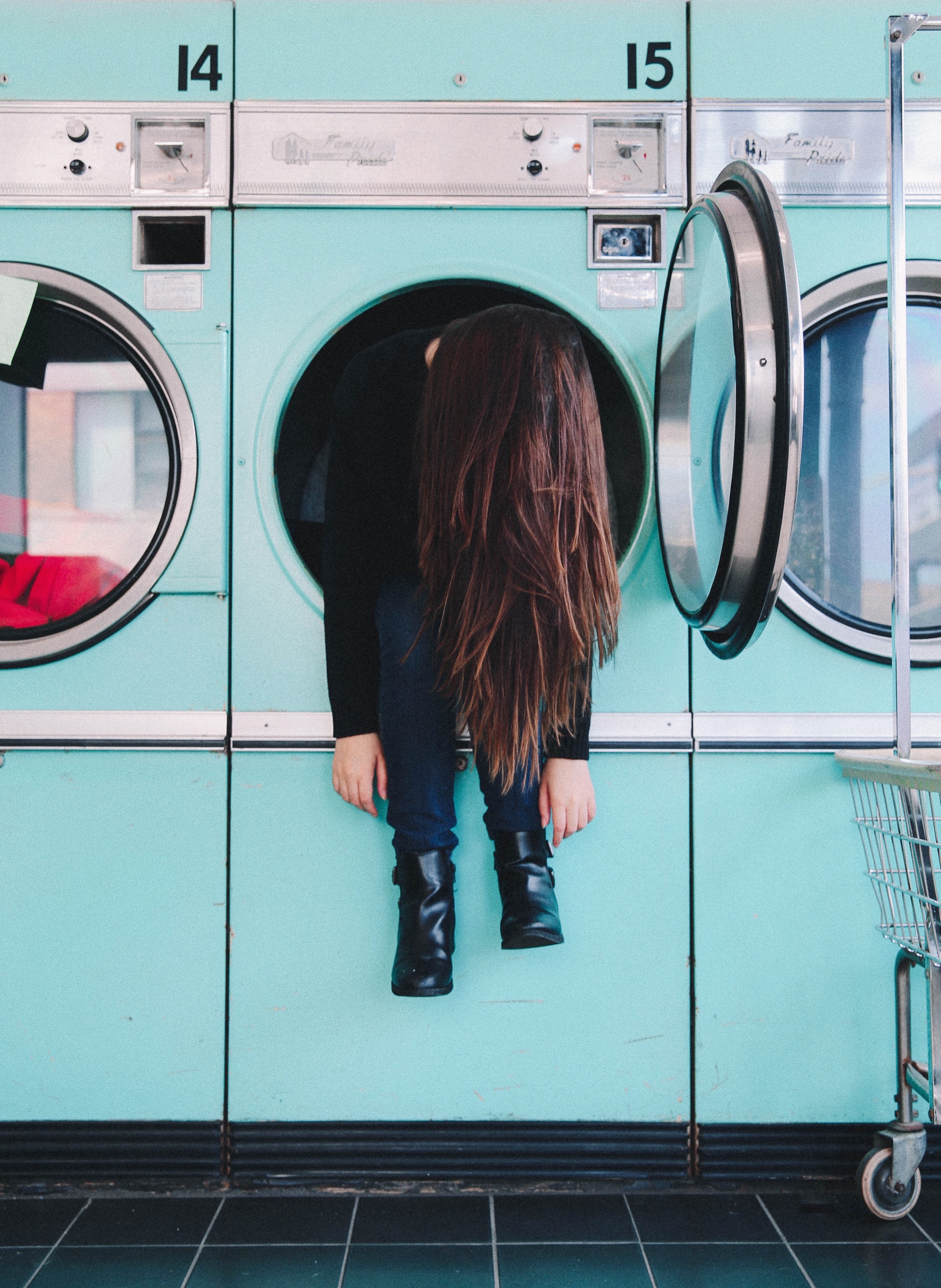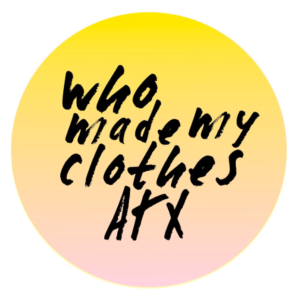Ethical soap decisions got ya looking like this?!
[/vc_column_text][vc_column_text]Do you feel smug eco pride when you pump french lavender from a teardrop-shaped Method dispenser? Ya, me too. There’s something about fresh clover and wild poppy that takes the sting out of prosaic chores. And don’t get me started on my shameless devotion to pink persimmon. Last year, I wrote Method an email expressing my entitled sorrow when they discontinued the scent.But something about this rings – not-so-eco, right? Can a company trumpeting neon-hued gels and liquids really be ethical as they say. Or are we being duped?
Francesca Willow, a respected eco-investigator and London based writer, took the liberty of investigating the ethical credibility of Method and its sister brand, Ecoover. This post originally appeared on her site, ETHICAL UNICORN.
If you liked my series on sustainable dry cleaning and home care, this is a nice supplement.[/vc_column_text][vc_separator color=”black”][vc_column_text]This one has bothered me for a while now.
I honestly can’t tell you why, but for some reason I’ve had a bad feeling when it comes to Ecover and Method cleaning products for years (although originally two separate companies, Ecover acquired Method back in 2012, so they’ve been two branches of the same company for a while now). In even the least eco-conscious of households I’ve often spotted a bottle or two of their products around; they’re sold in our larger supermarkets here and I think often people will go for what they believe is an environmentally friendly option if it’s right in front of them. I remember distinctly why I never liked Method, I felt like nothing could claim to be natural whilst also being brightest, least natural shade of purple out there. It seemed unnecessary and I just didn’t buy it. Ecover, I don’t know. I’ve just always had a weird feeling about them, suspecting something but without any actual evidence for it.
It’s also no secret to anyone who knows me that my personal allegiance lies with Bio-D for eco-friendly cleaning products and Cleaning Essentials for the DIY, zero waste option, so I do know that I’m biased to a certain extent (my suspicion does also pre-date discovering either company). I wrote about Bio-D way back when this blog started when I found them at my favourite eco-friendly dry cleaners, and later down the line became a brand ambassador for them. This doesn’t mean I’m sponsored by them, but it does mean that I’ve spent a lot of this year helping them develop their ranges, testing and talking about products, brainstorming ideas and discussing potential future lines they might expand into. I’ve been to their factory in Hull, where they make their whole hypo-allergenic range in house, and I’ve seen first hand how everything is made and what goes into it.
It was on one of these trips that I learned about Ecover.
When talking about Bio-D ingredients I got to thinking about Ecover and Method, the other big alternatives in the UK, and so I did a little digging on their history[/vc_column_text][/vc_column][/vc_row][vc_row][vc_column][vc_single_image image=”2669″ img_size=”large” alignment=”center”][vc_column_text]
The Synthetic Scandal
Back in June 2014, Ecover announced it would move away from palm oil and switch to using oils produced by synthetic biology company Solazyme Inc. (SZYM) via synthetically engineered algae which feed on sugar. Synthetic biology, in a nutshell, is the practice of artificially constructing genetic material such as DNA in order to create new forms of life or attempt to ‘reprogram’ existing organisms, such as yeast and algae. Synthetic biology companies claim that they can now generate millions of new organisms per day, in a set of engineering techniques that is completely new and unregulated. It is, essentially, the cleaning worlds version of the GM debate. In response to Ecover’s announcement 17 national and international consumer, environmental, women’s health and farming groups (including Friends of the Earth, Center for Food Safety, Consumers Union, Women’s Voices for the Earth, Clean Production Action, Organic Consumers Association, and ETC Group) wrote an open letter calling on Ecover/Method to cancel plans to use oils and other ingredients derived from synthetic biology. Here are the key points:
“It is our view that, given the significant gaps in knowledge, it is premature to bring synthetic biology and its products into commercial use. There are no developed or agreed protocols for adequate biosafety assessment of SMO’s [synthetically modified organisms]. Existing risk assessment, traceability and containment measures for genetically modified organisms (GMOs) may be inadequate for novel organisms produced through synthetic biology. There are also significant concerns about the impact of such highly novel organisms on ecosystems should they escape and on the livelihoods of tropical farmers and on biodiversity”
“We do not believe that engineered algae fed on sugarcane are a ‘green,’ ‘ecological’ or ‘sustainable’ solution to the problems of palm oil use. While we share your concerns about the forest destruction associated with palm oil (in this case palm kernel oil), we do not regard a switch to Brazilian sugarcane feedstock to be the solution. As you are no doubt aware, sugarcane production on Brazil’s fragile Cerrado eco-region is associated with significant biodiversity loss and CO2 emissions from both land use change and burning of the bagasse, as well as poor working conditions that can resemble slave-labour practices. The rapid expansion of land devoted to growing sugarcane in Brazil is moving back the agricultural frontier, driving forest destruction into the Amazon. It is our understanding that Ecover and Method could have chosen to source the relevant oleochemical ingredients from coconut oil, thereby supporting small and sustainable coconut farmers and not requiring the use of synthetically modified organisms.”
After the scandal came to light Ecover put algal oil trials on hold, and ethical consumer reports that no commercial products ever came from it. Ingredient wise, we’re safe from SMO’s with Ecover. However in the press release that followed the paused trials Ecover also point blank stated “Any allegations that we are using synthetic biology are untrue”, even though they definitely were true, as well as making some other claims that seem less than solid including the ethics of Brazilian sugar and coconut oil, the control of synthetic organisms and the company’s transparency. (For more on that, read this article for in depth analysis).
And generally, they’re still not the best option out there.[/vc_column_text][/vc_column][/vc_row][vc_row][vc_column][vc_separator][vc_column_text]Hop over to ETHICAL UNICORN for Francesca’s final say on Ecover and Method.[/vc_column_text][/vc_column][/vc_row][vc_row][vc_column][vc_separator][vc_column_text]An addendum from Kasi: S.C. Johnson just announced plans to acquire Method. Since moving into the Pullman area of Chicago, it seems Method has positively impacted the community. Keep a close eye on this, as well as the company’s business practices, as the acquisition unfolds.
Images: Unsplash Cictoria Palacios and Chuttersnap.[/vc_column_text][/vc_column][/vc_row][vc_row][vc_column][/vc_column][/vc_row][vc_row][vc_column][/vc_column][/vc_row]




